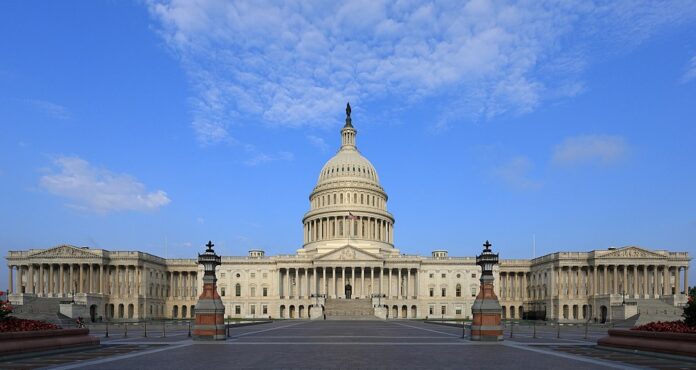CBO says Senate bill adds $500bn more debt than House version, with 12 million to lose health cover
A Senate-backed budget bill praised by Donald Trump as “big” and “beautiful” could saddle the US with nearly $3.3 trillion in new deficits over the next decade, according to a sobering report released by the Congressional Budget Office (CBO).
The bombshell estimate lands as the Senate races to finalise its version of the sprawling reconciliation package this weekend. If passed, the legislation would add $500 billion more in deficits than the already-controversial $2.8 trillion estimate for the House-passed version, which squeaked through in late May.
While Republican leaders have enthusiastically championed the bill, and Trump has tied his political fortunes to its success, the fiscal watchdog’s figures are certain to inflame tensions on both sides of the aisle.
Critically, White House economists have challenged the CBO’s findings, claiming their internal projections show the bill reduces deficits over the same 10-year period. But this analysis remains a notable outlier when stacked against independent forecasts, including those from the CBO and multiple think tanks.
The Senate version diverges sharply from its House counterpart in several policy areas — none more stark than healthcare. The CBO warns that the proposed changes to Medicaid and the Affordable Care Act (ACA) would leave an additional 12 million Americans uninsured by 2034. That figure marks a dramatic reversal of healthcare expansion trends over the past decade.
The House bill, in comparison, would result in 10.8 million losing coverage, still a devastating number but slightly less severe than the Senate’s iteration.
Democrats were quick to condemn the findings. Senator Elizabeth Warren called the plan “morally obscene,” arguing it sacrifices vulnerable families to fund top-heavy tax cuts and deregulation. “We’re slashing the safety net to bankroll a wish list for billionaires,” she said on the Senate floor.
Republicans have defended the bill’s healthcare provisions as a necessary rollback of “wasteful bureaucracy.” Senator John Thune, a key architect of the Senate package, said the reforms would “restore balance and personal choice” to the system.
But the CBO’s projections paint a grim picture for millions of low-income and working-class families who would lose Medicaid coverage or be priced out of ACA exchanges.
Meanwhile, Trump doubled down on his support during an appearance on Fox News. “It’s a beautiful bill — nobody ever built a bill like this,” he declared. “We’re giving people freedom, and we’re unleashing our economy.”
Yet the same bill threatens to do the opposite fiscally. The CBO’s forecast projects compounding annual deficits, culminating in an eye-watering $3.3 trillion hole by 2035 — a level that risks triggering automatic spending cuts or pushing interest rates higher to service the swelling national debt.
Critics say the situation mirrors past episodes of reckless budgeting, with echoes of the 2017 tax law, which also promised growth-fuelled deficit reduction that never materialised.
As Senate leaders prepare for a dramatic vote, the stakes couldn’t be higher. The bill now sits at the heart of an ideological clash over America’s economic direction: growth at any cost vs. fiscal responsibility and social safety nets.
The American public is left watching a political high-wire act — with trillions hanging in the balance.
